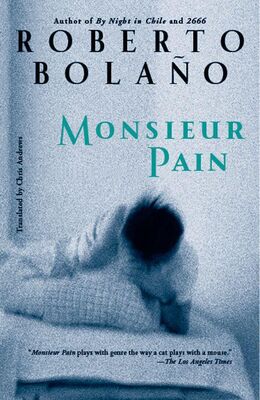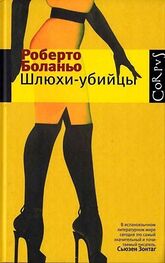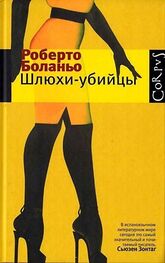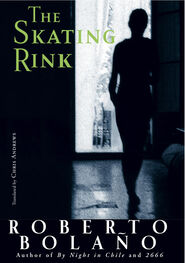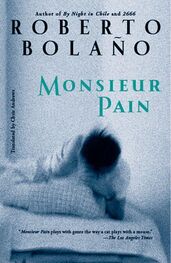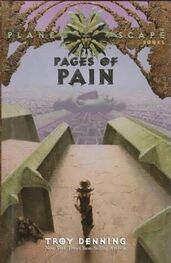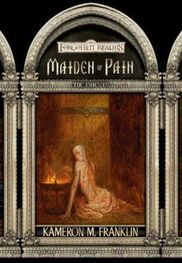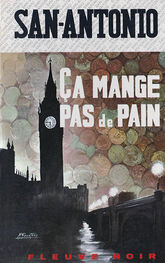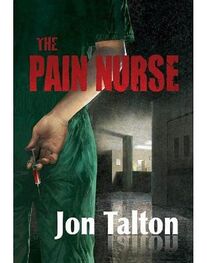I remained silent, scrutinizing the doctor’s lean face, while Madame Vallejo said something about urine tests that had not been carried out, or perhaps the results had gone astray; Lejard, in any case, simply shrugged. Later, when I felt that the moment to speak had come, I addressed him directly, asking with ill-disguised innocence what illness, in his opinion, Monsieur Vallejo was suffering from. His cutting reply was proffered in a baritone voice:
“I’m not obliged to answer that question. Ask Madame Vallejo. She’s aware of the latest developments; I’m not. I’ve never had much time for charlatans, personally.”
“What. . ” stammered Madame Vallejo.
Madame Reynaud took her by the arm.
“Georgette. .”
Ignoring the women, Lejard stared at me and smiled, as if giving me time to digest what he had flung in my face. Beside me, Madame Vallejo was blushing visibly; her jaw was tense and she seemed to be about to slap the doctor. I simply sighed, vainly attempting to assume a nonchalant expression, and examined the outlines of my shoes.
As Lejard walked away, after a perfunctory salute, which turned up the corners of his ironic smile, the three of us must have formed a peculiar tableau: frozen in the hallway, dumbstruck, unable to utter even a banal remark to break the silence, our faces turned toward a space no longer occupied by anyone, as if we were expecting Lejard to materialize exactly there and proceed to excuse himself. I can confidently say that my two companions felt the humiliation far more keenly than I did. The doctor’s attitude, though particularly malicious in this case, was not unfamiliar to me.
I coughed a couple of times, looking away from the women, sensing that they would prefer not to be watched, and we were about to resume our journey when, all of a sudden, before we had time to react, a mass of figures dressed in white advanced toward us, like an avalanche unleashed by a snowball.
When they reached us, a man with messy hair and moist eyes stepped forward and took Madame Vallejo by the arm, crying:
“The eminent Doctor Lemière is here.”
His words resonated as if in a church. The light dimmed again and my hair bristled: he had simply trotted out his ritual phrase.
Confirming the assertion, a plump little man in the middle of the group smiled to the left and the right, called for silence by raising his hand, which he then stretched out, with some difficulty until it reached the gloved hand of Madame Vallejo.
“A pleasure to meet you. I have just seen your husband. All his organs are in perfect working order! I can’t see what’s wrong with the man. May I?”
Madame Vallejo followed Doctor Lemière, who led her by the elbow to a door which hid the corridor’s spiral curvature. From where I was standing, they were shrunken, childlike figures. Doctor Lemière’s white mane, matching the double door behind him, was animated by a series of small jerks, marking affirmations, negations and questions; Madame Vallejo’s head moved only once, turning briefly, searching for us in vain, as if to say good-bye.
“We’d better go,” whispered Madame Reynaud.
The doctors accompanying Lemière looked at us with weary, flat eyes, devoid of hope. It was as if I had somehow become the invisible man. A tall handsome young fellow was whispering in the ear of a dark, plump girl with an intelligent face. Another young man was holding a notebook and staring up at the roof. Behind him three others stood quietly and calmly with their hands in their pockets; to their left, a blond boy was looking intently at the palm of one of his hands and holding an extinguished cigarette in the other. With his back to the blond boy, the man who had introduced Lemière and who presumably belonged to the clinic’s administrative staff was listening to the chatter of a bald fellow with an abundant moustache, who was standing very close to him and clasping at least four massive tomes with cracked spines.
Two members of the group, standing apart from the others, almost against the opposite wall of the hallway, struck me as familiar. Both were wearing stethoscopes around their necks.
“But I must see Monsieur Vallejo,” I protested softly.
The volume of my voice was so low, I couldn’t tell if I had spoken or merely thought.
“Not now. Follow me. I’ll explain outside.”
Madame Reynaud’s blue eyes seemed drained of life; it’s the whiteness, I thought, that artificial light. I was about to follow her when I noticed a slight fissure in the scene: there was a trace of alarm in the faces of the two familiar-seeming doctors. I smiled in their direction, perhaps expecting them to respond with a gesture and confirm my supposition, but they maintained an impassivity perfectly matching that of their colleagues. I walked away, following Madame Reynaud. I remember she outpaced me; with every heavy step I took, I felt as if my legs were made of lead. In the end I stopped. The sensation of being in an art gallery spread through my veins and paralyzed me. Madame Reynaud kept walking. I looked back; Madame Vallejo had taken off a glove and was glancing back and forth between her nails and Lemière’s face. My position, equidistant from both women, must have betrayed confusion and awkwardness, but no one was paying me any attention. At that moment, as if by design, the lights in the hallway flickered. I thought, Now there really will be a blackout. Madame Reynaud’s shadow seemed to crash into the wall. I turned my head again: some of the doctors were looking up at the ceiling listlessly, as if the phenomenon were not unfamiliar to them. The intensity of the illumination, once it stabilized, was considerably reduced. Now the hallway was bathed in a dim sepia light and the shadows stretched off indistinctly. Madame Reynaud was waiting for me at the other end of the corridor with her lips slightly parted, as if she had pronounced an inaudible word — my name perhaps. For the last time I turned my gaze to the group of doctors. The two I thought I knew were still there, set apart somehow, like foreign students, I thought.
The word foreign gave me the key; I understood then who they were and where I had seen them, and I ran to Madame Reynaud, who looked at me in surprise.
“Monsieur Pain, remember that we are in a hospital,” she said to me reprovingly.
Outside it had begun to rain: a fine drizzle, which though barely noticeable intensified the lonely stillness of the night. Madame Reynaud had brought an umbrella. The street was empty, as if the inhabitants of the neighborhood had all chosen to stay in their apartments. I did, however, note the following detail: the street lamps were the only sources of light. Were there people in the unlit apartments? We walked along the sidewalk arm in arm. All of a sudden, I don’t know why, everything seemed perfect. Madame Reynaud’s profile, the dripping of the rain on the umbrella, the sense of adventure, faint but shared.
“Doctor Lemière is a famous specialist, at least that is what Madame Vallejo told me yesterday. As it happens, just yesterday she was telling me how difficult it was, impossible in fact, to get the clinic’s leading physician to take an interest in her husband’s case. Someone must have put in a word for Monsieur Vallejo and finally convinced Lemière to make some room in his busy schedule. An odd coincidence, though, don’t you think? But it was exactly what Madame Vallejo had been hoping for. So, you see, we were rather in the way.”
“What you mean is that Lemière wouldn’t tolerate my presence in his patient’s room,” I protested. “The doctor and the quack are incompatible.”
“I didn’t say that, Monsieur Pain. And anyway, you’re not a quack.”
“That’s how I was treated. Have you forgotten already?”
Читать дальше